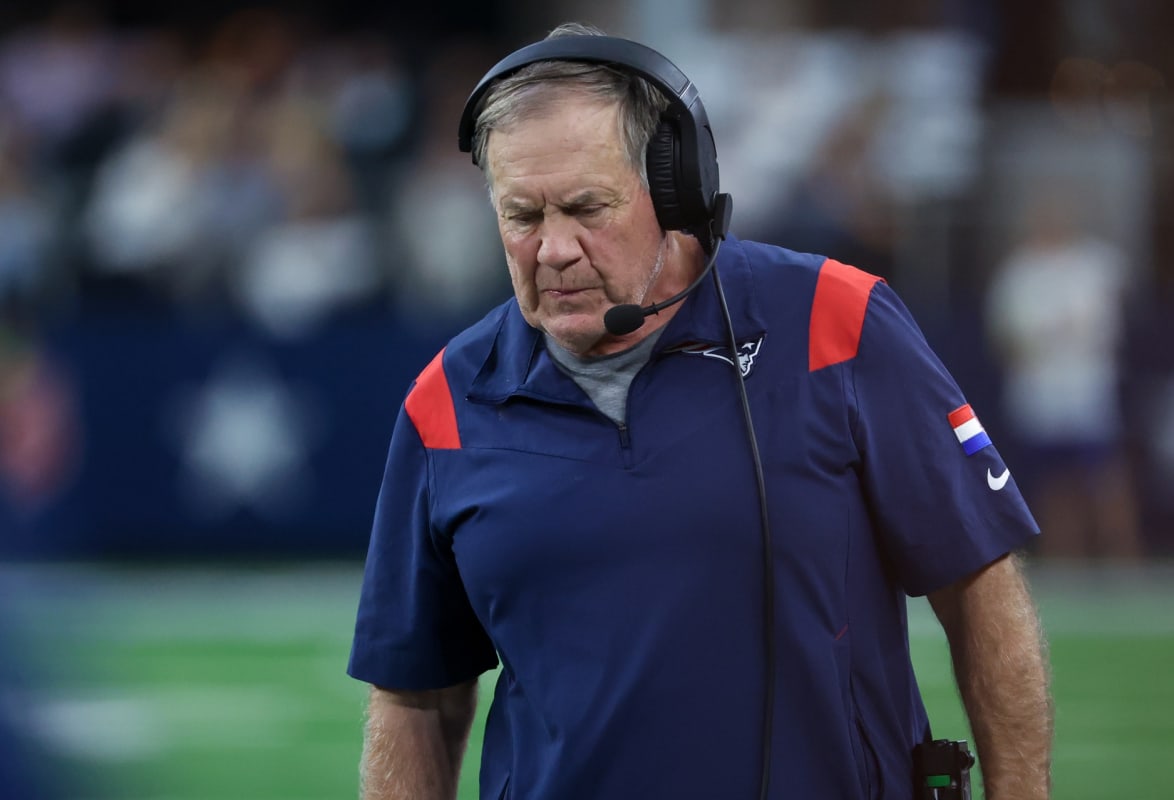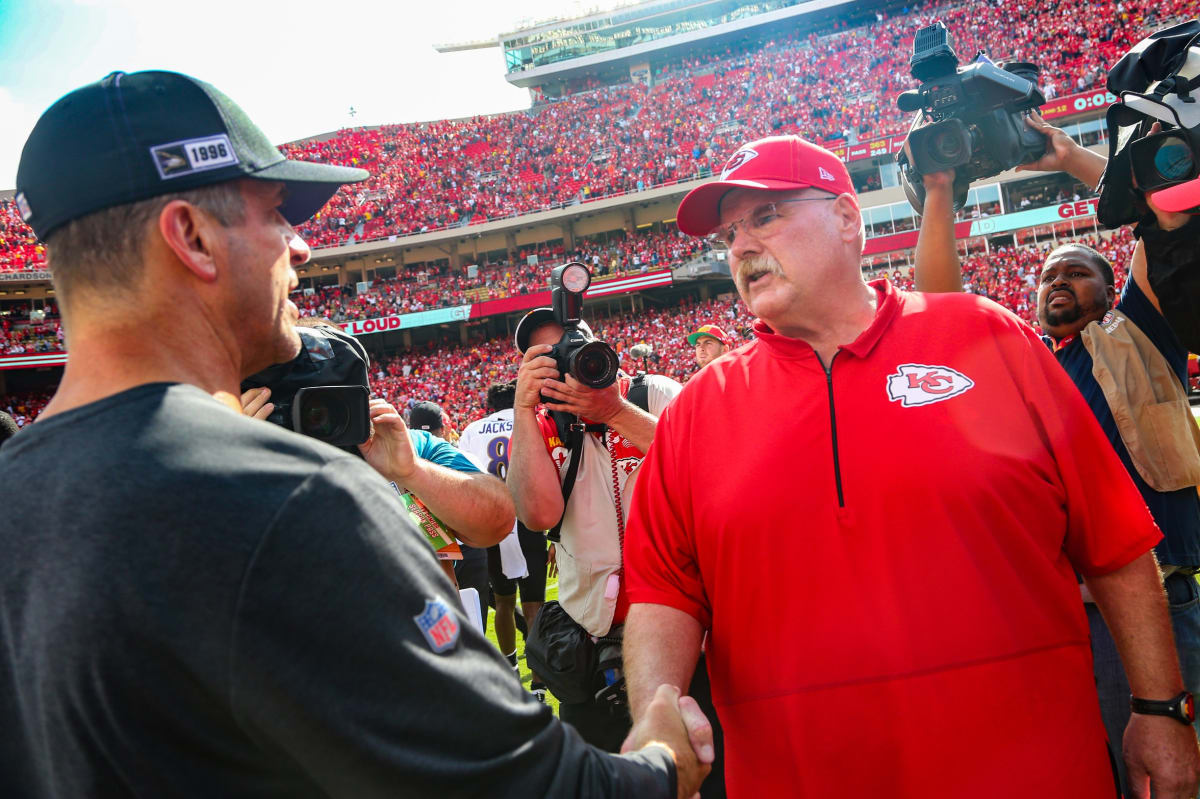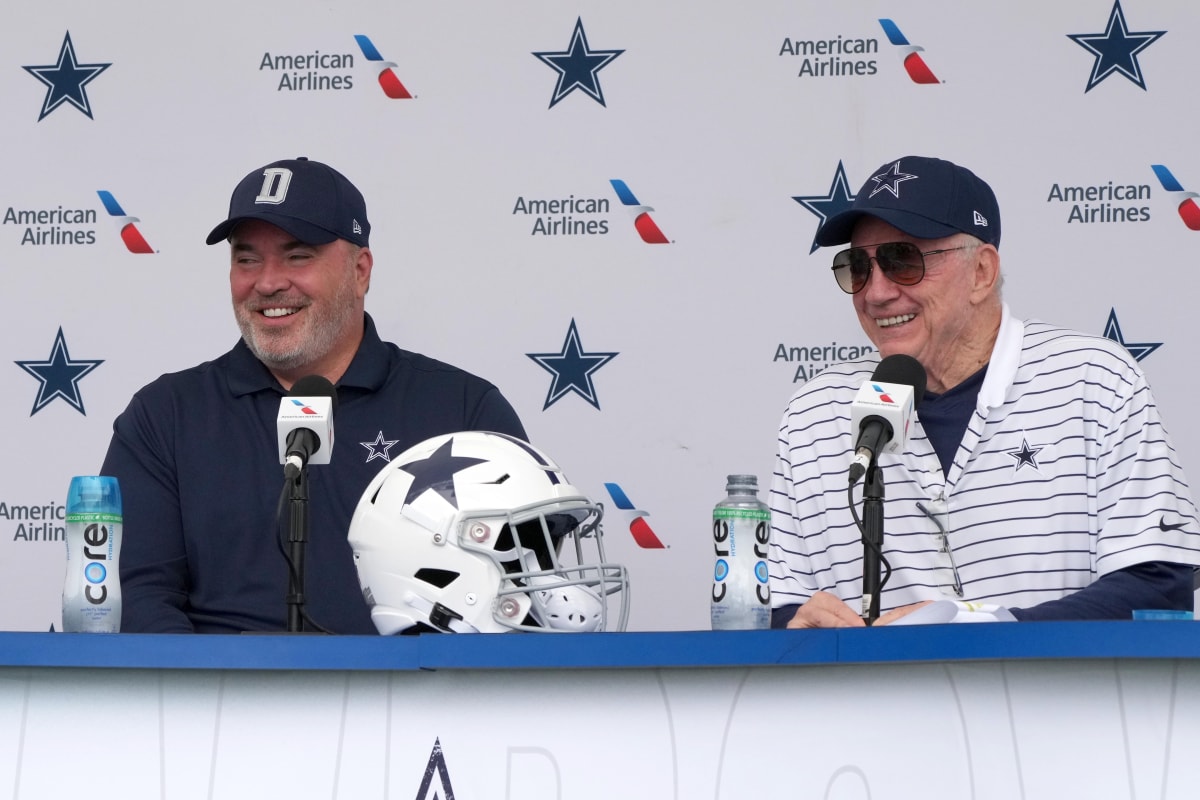NFL franchises are famously unsentimental, always willing to fire a productive employee if somebody else becomes available. Unless that employee is a head coach.
In the next few weeks, there will be a lot of talk about what coaches “need to do” to keep their jobs. The answer is usually straightforward. In the last 20 years, owners have retained 99% of head coaches who made the playoffs and wanted to stay. It is a simplistic standard that seems sensible but really isn’t.
You might think, “Well, duh—teams keep successful head coaches!” But 99% is an extraordinary figure, and an outlier in the world of pro sports. Look around.

Kevin Jairaj/USA TODAY Sports
This summer, three NBA teams fired coaches who made the playoffs, including two (Philly’s Doc Rivers and Phoenix’s Monty Williams) who won a series this year, and another (Milwaukee’s Mike Budenholzer) who had the league's best regular-season record.
From 2006 to ’22, the Pittsburgh Penguins made the playoffs 16 consecutive years, won three Stanley Cups—and employed four head coaches.
In the last decade, manager Dusty Baker has been fired twice after leading teams to the playoffs. Since 2003, the Red Sox have fired two managers who just made the playoffs. The Yankees fired one (Joe Girardi) and offered another (Joe Torre) a one-year contract with a 50% pay cut, knowing he would say no.
But since the 2003 season, 246 NFL teams have made the playoffs; 238 of them retained their head coach; four lost coaches to retirement (Bill Parcells, Joe Gibbs, Bruce Arians, Tony Dungy); and one dismissed an interim coach hired under unusual circumstances (the Raiders, who promoted Rich Bisaccia when Jon Gruden’s offensive emails became public). The only true firings were the Titans’ Mike Mularkey, Denver’s John Fox and San Diego’s Marty Schottenheimer. That means 238 of the last 241 head coaches who wanted to come back did come back.
Watch the NFL with Fubo. Start your free trial today.
Meanwhile, 33% of teams that missed the playoffs changed coaches.
“One hundred percent, I feel like if you make the playoffs as an NFL coach, you survive to live another day as the head coach,” says former Falcons general manager Thomas Dimitroff, now CEO of Sumer Sports, an analytics company that works with NFL teams to build better rosters. “No question about that. For all the years that I was involved in the NFL, I felt that even when you had a rocky run, if you made the playoffs—even sub-.500—it was your saving grace.
“That seems to be what most people in the NFL believe as they are traveling their journey, right? I need to be in the playoffs to continue to survive.”
This is not to say every other sport is doing it right—or that NFL owners need to fire coaches more often. But the way they tie coaching changes to playoff berths is simplistic and self-defeating. It is a window into how too many owners view their business, the job of a head coach and the game of football.
There are many ways to look at an NFL head coach. A “leader of men.” The face of a franchise. An organizational tone-setter. The one whose vision drives every move the team makes.
Any one of those views makes change a little scary. Players are drafted and signed to fit specific schemes. They must memorize complex offensive and defensive terminology, and execute strategies that are much more complicated, and executed at a much higher pace, than in, say, baseball.
“You spend a lot of money, a lot of time in developing players that fit into a scheme, and then all of a sudden, there’s a firing and a new coach comes in,” Dimitroff says. “That can be a massive drain on the organization from an energy standpoint, but also from a cap standpoint.”
In this world, naturally, continuity is valued. But is it overvalued? Last year five NFL coaches (Brian Daboll, Bills; Doug Pederson, Jaguars; Todd Bowles, Buccaneers; Kevin O’Connell, Vikings; Mike McDaniel, Dolphins) led teams to the playoffs in their first year. That number was unusually high, but first-year turnarounds are still quite common.
If a team can go from 4–13 to the playoffs under a new coach, why can’t it go from 11–6 to winning the Super Bowl?
What would happen if every NFL owner evaluated head coaches based on who they are—employees doing one job in a large organization where many variables impact company performance?
In other sports, it is commonly accepted that good coaches are sometimes stuck coaching bad teams—and bad coaches sometimes end up with good ones. Coaches are far more likely to be evaluated based on their contributions to the result, instead of solely on the results with no context.
When the Suns fired Williams, the Cavaliers fired David Blatt, and the Clippers and 76ers fired Rivers, they all did so under the belief that almost any NBA head coach would have made the playoffs with their rosters. They just believed they could find another coach who would win more.
Whether those evaluations were accurate is a separate conversation. The thought process was a lot more nuanced and logical than what we usually see in the NFL, where there is a perception that a team’s record is a direct reflection of the head coach’s performance. Dimitroff says it’s a lot more complicated than that.
“[Some coaches] won games—some even won Super Bowls—who might not have been as talented as some of these coaches who got fired after a handful of years,” Dimitroff says. “That’s the thing that I think is interesting. … They are of lesser talent than coaches out there who have only had a swing at it for four years and have been fired. There’s no question about that. But everything has come together.”
Essentially, football is so complicated that many owners don’t really understand it well enough to thoroughly evaluate coaches. So they simplify it to the point where they can understand it—and then make decisions based on that simplified view.
When that is how you operate, the equations are easy.
Playoffs = success = good coaching job.
Missing playoffs = failure = bad coaching job.
There is a perception that making the NFL playoffs is a bigger achievement than in other sports. But this is mostly because more people are watching. There is a week of buildup. Every playoff game has its own national window. The least-watched NFL playoff game last winter, Jaguars-Chargers, still averaged 18 million viewers, more than any game in the most recent NBA Finals or World Series.
Baseball teams that win their division triumph over familiar rivals that they play six times a year, inflating the fan bases’ perception of the achievement. But is winning the AFC South really more impressive than winning the American League Central?
For the fourth consecutive season, 14 of 32 NFL teams will make the playoffs. Major League Baseball’s expanded postseason is more selective: 12 of 30 make it. Sports fans have mocked the NHL playoffs for decades, but it is only slightly more difficult to make the playoffs in the NFL than in the NHL, where 16 of 32 teams make it. Even the NBA’s barrier to entry is only a little lower: 16 of 30 teams make the playoffs. (Technically, play-in participants do not make the playoffs unless they advance.)
Overstating the achievement of making the playoffs, and overestimating a head coach’s role in that achievement, leads to another flawed line of thinking: When teams don’t make the playoffs, owners are often too hasty to conclude it was the head coach’s fault.

Jay Biggerstaff/USA TODAY Sports
Sometimes, of course, it is. But once in a while, even a future Hall of Famer such as Andy Reid goes 4–13.
The Eagles have thrived since firing Reid in 2012, but his success in Kansas City tells us the Eagles probably would have thrived if they had kept him, too. There was a belief in ’12 that Reid’s tenure had run its course, or that he had done all he could do in Philly and it was time for a change. That is what happens when you view a coaching tenure like a TV series—after a while, the excitement wanes and you get tired of the characters.
Reid was, and is, an excellent head coach, just as John Harbaugh was an excellent head coach even when he went 40–40 with one playoff win in a five-year stretch.
When the Falcons fired Dimitroff and head coach Dan Quinn in 2020, most Atlantans seemed to be ready for a change. But for the past two Januarys, Quinn has been one of the league’s top head coaching candidates; he probably would be a head coach again but he is waiting for the right opportunity. If Quinn was an elite head coach seven years ago, and is considered one again, did the Falcons really need to fire him in between?
“Some of these really good football coaches—who are really talented at game planning, coaching, leadership, development—run into an impediment, and then they are no longer producing the way that they can produce,” Dimitroff says. “And then an owner says, ‘Well, it’s time to move on. I’m sure you’ll get a job somewhere else because you’re a damn good coach. But we need to make a change here. We need to change the momentum of this organization.’”
The major flaw in that line of thinking is the idea of momentum. It is often just a euphemism for “perception.” When a longtime coach starts losing, fans get restless. Local media gets critical. The idea of something fresh is appealing, and so a narrative builds about a coach’s schemes getting stale or his voice being tuned out in the locker room. That happens in every sport, but NFL owners are especially susceptible to reacting to it.
“One of the most sort of misunderstood or misaligned processes is thinking that after a certain amount of time that a head coach and the general manager won’t be better,” Dimitroff says. “We’ve seen some very successful coaches in their second second stint as a head coach.”
That is an understatement. The two best coaches of the past 25 years, Reid and Bill Belichick, had more success in their second job than in their first. So did all-time wins leader Don Shula.
When teams make the playoffs, owners tell their fans the season was a success. Firing the coach undermines that sales pitch.
But when teams miss the playoffs, fans tell owners the season was a failure. Firing the coach makes the customers feel heard. Owners don’t just want a new employee to do the job of a head coach. They see that their fans want a new product, and so they try to quickly manufacture one.
Every NFL team is worth billions. The impact of every major decision is well into the millions. Entire city populations seem to dream of seeing their local team lift the Lombardi Trophy. Owners do, too. Yet those owners continue to fire and keep head coaches based on a rudimentary method of evaluation.
There is a market inefficiency just waiting to be exploited, and there are reasons to wonder whether this season somebody will see that.
This will be the fourth season of a 14-team playoff. At some point, owners should realize that making the postseason with a 9–8 record does not mean their chemistry is so special that they must keep everybody together. At some point, owners should look at Belichick, Reid and even Harbaugh and realize that reacting to one season’s disappointing record is a poor way to evaluate a head coach—especially one who has proved he can do the job extremely well.
This season, the imbalance between the NFC and AFC is so great that it could cause owners in both conferences to reevaluate the merit of a playoff berth.
So many AFC teams have Super Bowl expectations that it is highly likely that one will lose in the first round of the playoffs (or miss them altogether). Some of those teams, such as the Chiefs and Bengals, would surely keep their coaches. But will the Chargers keep Brandon Staley if they lose a wild-card game? Will the Browns keep Kevin Stefanski if they eke in and lose?
The NFC playoffs, meanwhile, are likely to include one or two franchises that aren’t even in the 50th percentile of NFL teams. Is getting the sixth or seventh seed in this year’s NFC playoffs really a reason to celebrate? Would it convince new Commanders owner Josh Harris to keep fourth-year coach Ron Rivera, whom he did not hire?

Kirby Lee/USA TODAY Sports
Would Cowboys owner Jerry Jones keep Mike McCarthy if Dallas loses on wild-card weekend? Or does Jones think somebody else could get more out of his roster? Jones has a strong recent history of sticking with coaches he hired. But he also has a long history of hiring coaches he knows. If Jones has a chance to choose among McCarthy, Cowboys defensive coordinator Dan Quinn, former Dallas offensive coordinator Kellen Moore and whoever else is on the market, how much weight will he give to incumbency?
The 18 owners whose teams miss the playoffs will have to ask the inverse of that question: How much will they prioritize change? Do they have the expertise to see if a good coach had a bad roster or unfortunate circumstances—and do they have the guts to keep him?
Just as the best coaches place process ahead of outcomes, the best-run NFL franchises know how to evaluate job performance beyond just looking at the standings. Everybody likes to make the playoffs. Not everybody understands how to keep doing it.







